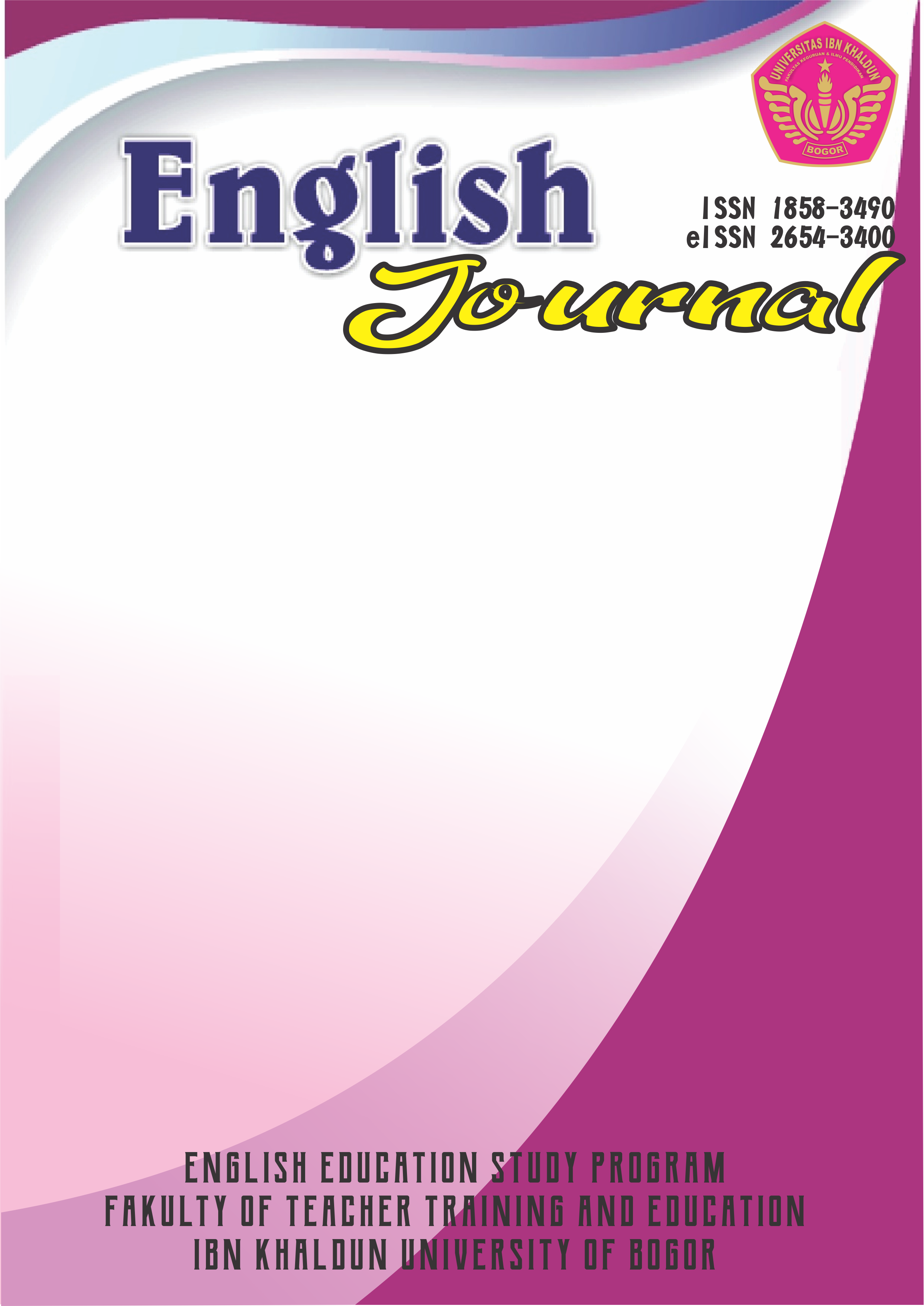EFL TEACHERS' BELIEFS AND PRACTICES ON LEARNER AUTONOMY
DOI:
https://doi.org/10.32832/english.v13i2.3782Abstrak
Learner autonomy which makes learner act more effectively has paid more attention in educational research and teaching practices in the 21st century. The aims of this study were to investigate the EFL teachers' beliefs on learner autonomy and how their beliefs about this concept were applied in their teaching practices. The data were collected through qualitative methods by using questionnaire, interview guide and observation guide. The result of this recent study showed that the teachers had negative beliefs towards their students as autonomous learner. On the other hand, the teachers would like to have students to be more autonomous, but they are lack of understanding about the term of learner autonomy. It is indicated that teachers' beliefs and practices failed in fostering learner autonomy in their contexts even when the policy is mandated by the government and their educational institutions.
Referensi
Aguiree, J., & Speer, M. N. (2000). Examining the relationship between beliefs and goals in teacher practice. Journal of Mathematical Behaviour, 327- 356.
Balçıkanlı, C. (2010). Learner autonomy in language learning: Student teachers' beliefs. Australian Journal of Teacher Education, 35.
Barillaro, F. (2011). Teacher perspectives of learner autonomy in language learning. TESOL Center.
Basturkmen, H. (2012). Review of research into correspondence between language teachers' stated beliefs and practices. System, 40, 282.
Benson, P. (2001). Teaching and researching autonomy in language learning. London: Longman.
Benson, P. (2008). Autonomy in and out of class. In L. D. P Benson, & L. Legenhausen, Learner autonomy: What does the future hold? (p. 1). Proceedings of Spain TESOL.
Benson, P. (2011). Teaching and researching autonomy in language learning.
Harlow: Pearson Education Limited.
Blumberg, P. (2009). Developing learner-centred teaching: A practical guide for faculty. San Fransisco: Jossey-Bass.
Borg, M. (2001). Teachers' beliefs. ELT Journal, 55.2, 186-188.
Creswell, W. J. (2012). Educational Research - Planning, Conducting, and Evaluating Qualitative and Quantitative research. Pearson Education, IV.
Dörnyei, Z. (2001). Motivational strategies in the language classroom.
Cambridge: Cambridge University Press.
Erkmen, B. (2010). Non-native novice EFL teachers' beliefs about teaching and learning. (Unpublished doctoral thesis). University of Nottingham, Nottingham, England.
Farrell, T. (2013). Reflective teaching. Tesol International Association.
Hernandez, P. A., & navarrete, M. O. (2015). A case study on EFL teachers' beliefs about the teaching and learning of English in public education. Porta linguarum, 23, 172.
Lengkanawati. (2017). Learner autonomy in the Indonesian EFL settings. Asian EFL Journal, 222-231.
Little, D . (1991). Learner autonomy 1: Definitions, issues and problems. Dublin: Authentik.
Maoying, X., & Yiping, W. (2016). An investigation of university foreign language teachers' beliefs on learner autonomy. Dalian: Foreign Languages and Their Teaching, 115-153.
Najeeb. (2013). Learner autonomy in language learning. Procedia- Social and Behavioral Sciences, 70, 1238 – 1242. .
Nguyen, N. T. (2012). Learner autonomy in language learning, 21. (Unpublished doctoral thesis). Queensland University of Technology, Queensland, Australia.
P Benson, L. D., & Legenhausen, L. (2008). Learner autonomy: What does the future hold? Proceedings of Spain TESOL, 1.
Phipps, S. (2009). The relationship between teacher education, teacher cognition and classroom practice in language teaching: A case study of MA students'
beliefs about grammar teaching the university of leeds school of education System, 380.
Richard, C. J. (2002). Longman dictionary of language teaching and applied linguistics. PAC Journal, III.
Richards, J., Gallo, P., & Renandya, W. (2001). Exploring teachers' beliefs and the processes of change. PAC Journal, 50.
Scharle, A., & Szabo, A. (2000). Learner autonomy, A guide to developing learner responsibility. Cambridge: Cambridge University Press.
Shakouri, M. N., & Bahraminezhad, J. R. (2012). Autonomous learning: A teacher-less learning. Procedia- Social and Behavioral Sciences, 55, 835 – 842.
Stergipoulou, E. (2012). Comparing experienced and inexperienced foreign language teachers' beliefs about language learning and teaching. Steiner Education Journal.
Utami, D. N. (2016). The EFL teachers' beliefs and their teaching practices .
OKARA Journal of Languages and Literature, II.
Voller, P. (1997). Does the teacher have a role in autonomous language learning. in P. Voller(Eds.), Autonomy and independence in language learning. New York: Longman.
Xu, L. (2012). The role of teachers' beliefs in the language teaching learning proceess, 2. January 13, 2019. Dalian University of Technology, Theory and practice in language studies. https://doi.org/10.4304/tpls.2.7.1397- 1402.
Yoshihara, R. (2012). ESL teachers' teaching beliefs and practices: A case study of three teachers in an ESL program. The Journal of Humanities and Sciences (Nihon University), 41-61.
Zhuang, J. (2010). The changing role of teachers in the development of learner autonomy. Journal of Language Teaching and Research, 591-595.

















1.png)




